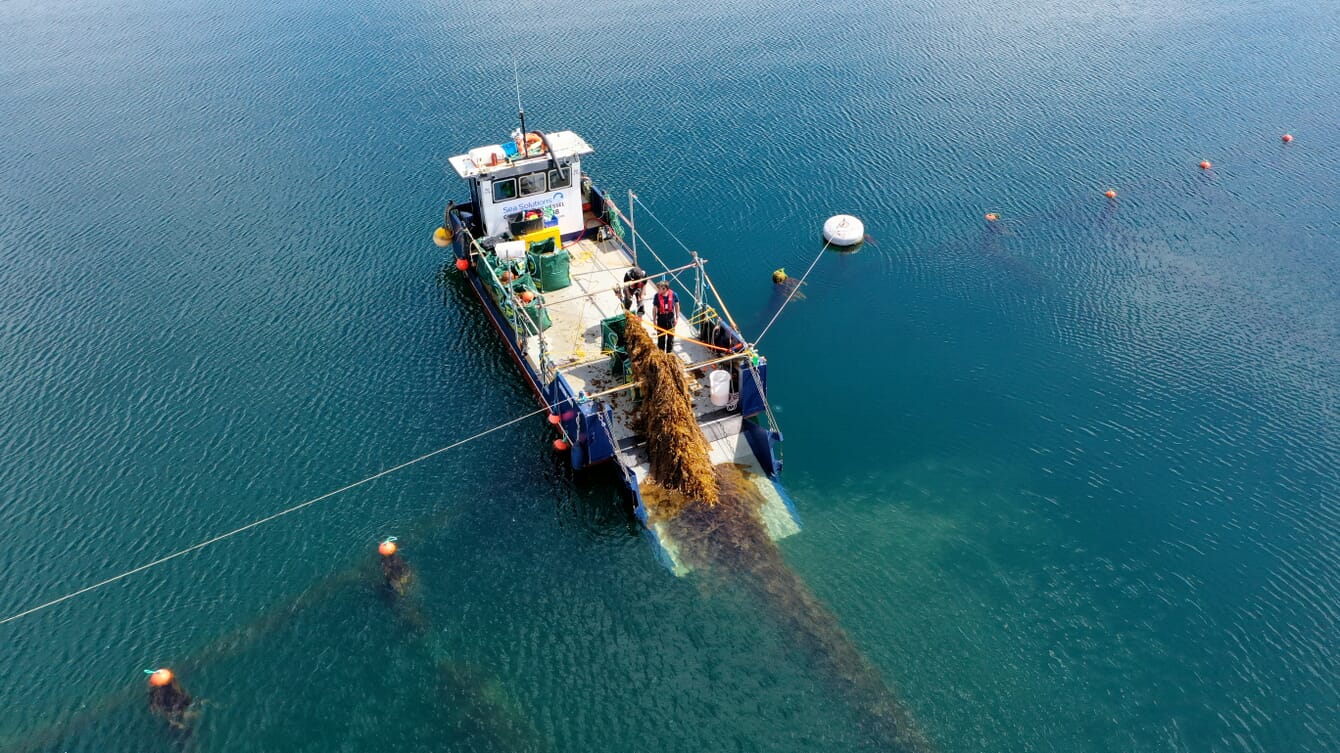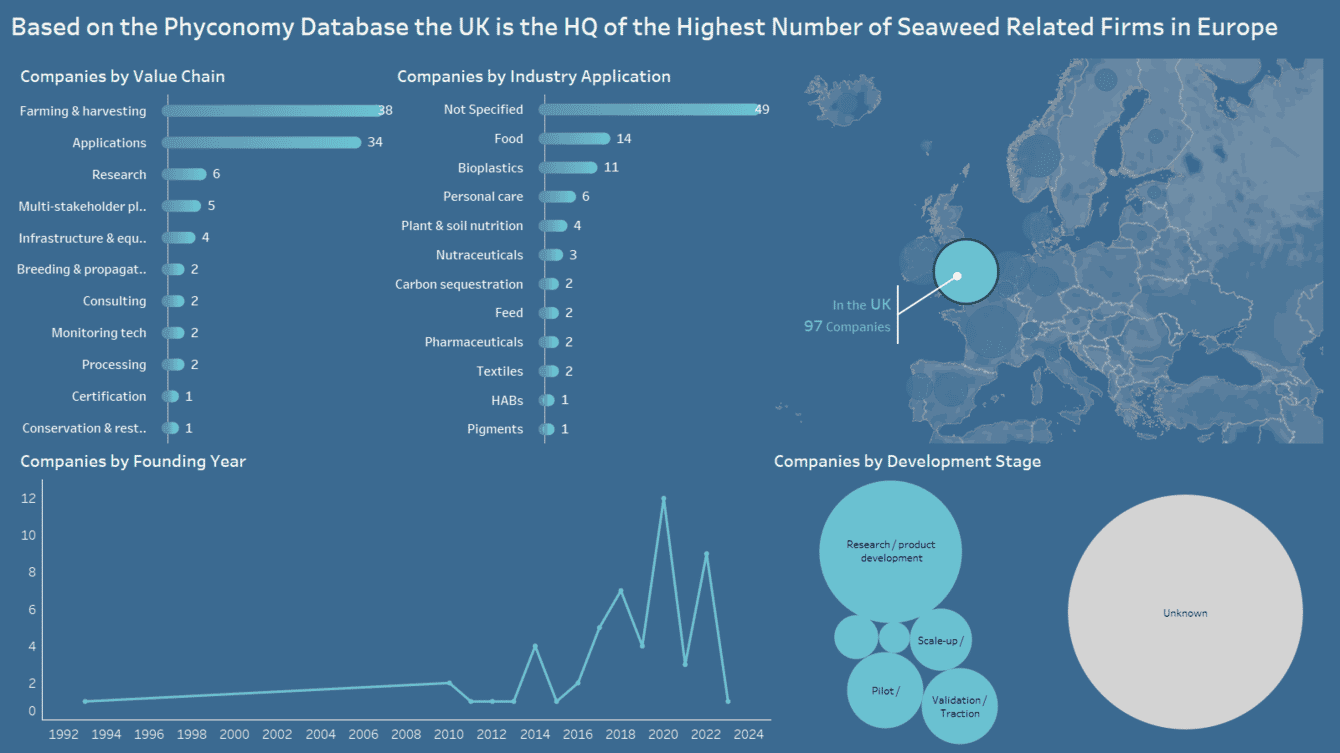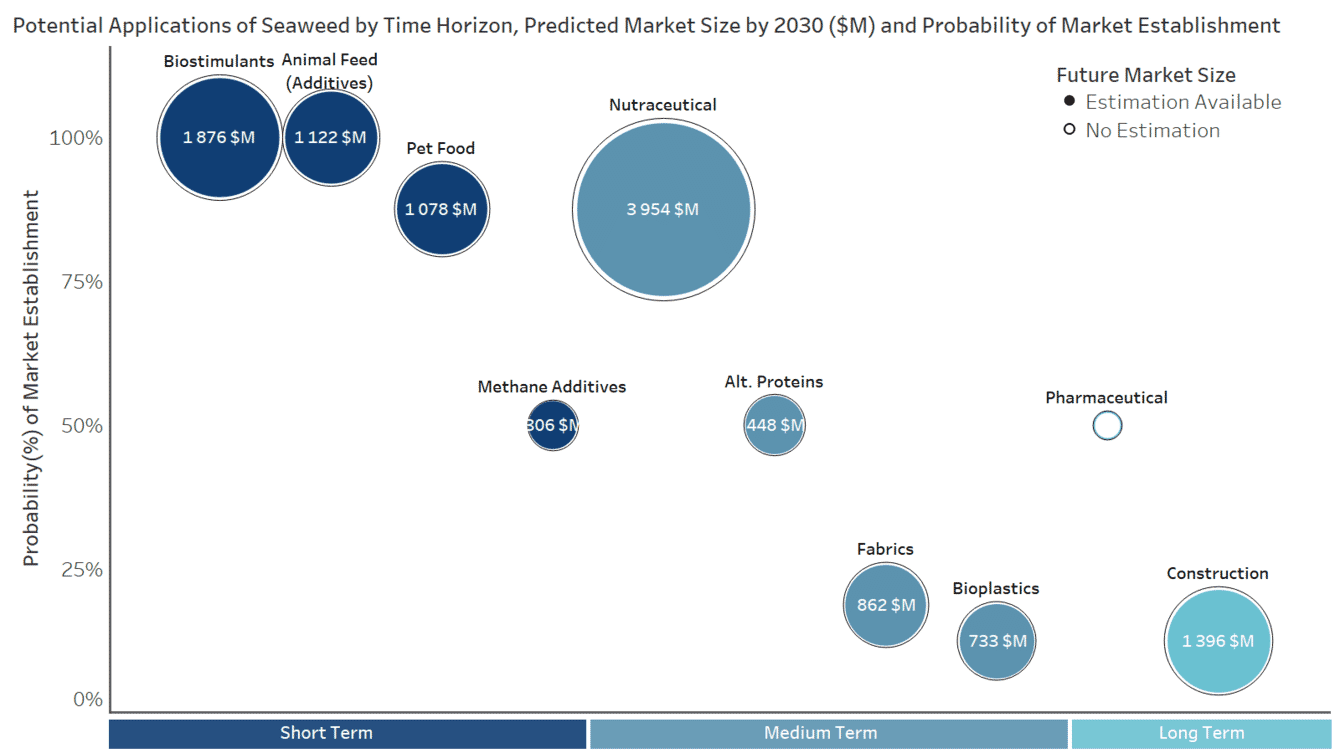
© SAMS
The first-of-a-kind project is being undertaken by Hatch Innovation Services (HIS) and MacAlister Elliott & Partners (MEP) consultancy, in partnership with WWF UK. It is closely supported by The Crown Estate and Nestlé Europe.
Environmental and economic advantages of seaweed farming
Seaweed farming represents a promising frontier in future food systems, offering significant potential environmental and economic benefits. The new collaboration seeks to shed light on the multifaceted advantages of British seaweed cultivation: from carbon sequestration and emissions avoidance to nutrient bioremediation and coastal protection, seaweed farming could play a pivotal role in restoring nature, enhancing marine ecosystems and mitigating climate change. Moreover, the economic potential of seaweed as a versatile resource extends across food, feed, pharmaceuticals and various industrial applications.
The state of seaweed farming in the UK
While the UK seaweed industry is relatively young, there are signs of high growth potential. According to some estimates, 15,000 tonnes (wet weight) of seaweed was harvested in the UK in 2021, and from 2016 to 2021, the number of seaweed-related companies doubled. Up to 74 separate companies were taking part across the value chain in 2021 – of which 35 percent were located in England, 34 percent in Scotland, 18 percent in Wales, 8 percent in Northern Ireland, and 5 percent with unclear locations. However, these figures are now outdated, and much interest in recent years has led to a rapidly changing outlook for responsible seaweed production in the UK.

© Visual generated by Hatch Innovation Services, based on data from Phyconomy
The UK must have a clear picture of the industry's current state and establish a responsible and sustainable growth strategy for the coming years, including a realistic target for scale-up. This will attract collaboration amongst relevant stakeholders, including devolved governments, investors, industry, and others. This project will estimate the supply chain's future potential environmental, economic and social value, both for the UK as a whole and for each devolved nation, building on other significant studies. Furthermore, the project will recommend how a robust and enabling regulatory framework could be set up, alongside a range of other key actions, that may encourage and support the expansion of the industry in a sustainable manner, with environmental issues taken into consideration and economic viability and social impacts adequately taken into account.
Alongside increasing supply, the markets for seaweed-based products and other market applications should simultaneously be scaled to sustain each other, all while developing processing capacity. For this project, the partners will partially base their methodology on recent work by HIS, mapping and describing seaweed production in the top producing countries and the 2023 Global Seaweed Market Report, analysing the market opportunities for new and emerging seaweed markets.
The new project will feature interviews with those already in the industry, visits to some of the UK's most prominent seaweed farms, and in-depth case studies for several key locations. Complementing this, the initiative will also incorporate MSP/GIS mapping.

© Hatch Innovation Services
A strong track record
Hatch Innovation Services and MEP have both worked on previous projects designed to scale up the sustainable seaweed sector globally. These include analyses and deep dives into global emerging markets; feasibility studies; MPA management; blue carbon projects; seaweed for food applications; economic, community and ecological seaweed assessments; and seaweed’s potential as a novel crop in the Pacific islands and in Africa.
Nitzan Unger, senior project manager at Hatch Innovation Services, said in a press release: "We aim to showcase the UK devolved nations' current industry and unravel a course towards a sustainable, seaweed-rich future. Together with MEP, we seek to produce comprehensive and straightforward deliverables that will support different stakeholders and policymakers to strive for a better tomorrow where seaweed becomes a cornerstone of environmental and economic progress.”
Gerardo Diaz, aquaculture consultant from MEP, added: “This is a great opportunity for collaboration between the amazing teams that represent these remarkable entities. It is clear to us that low trophic aquaculture, including seaweed, represents the industry's natural next step of sustainable development. We look forward to engaging with the different stakeholders and working alongside Hatch Innovation Services and WWF UK towards the common goal of supporting the UK’s seaweed industry growth”.
Mollie Gupta, project manager for WWF UK’s Seaweed Solutions Programme, added: “We are really excited about the potential for regenerative ocean farming to support the UK in rising to the challenge of meeting our food and wellbeing needs whilst also helping to restore nature and avoid catastrophic climate change. By bringing to life how seaweed farming could benefit us in the future, we hope to contribute important evidence and lay out a potential path forward for this new industry”.
Caroline Price, interim head of nature and environment at The Crown Estate, concluded: “As manager of the seabed around England, Wales, and Northern Ireland, The Crown Estate is committed to supporting research that helps to enhance our collective understanding of the marine environment to ensure the best outcomes for nature and communities. With all the environmental and economic benefits that seaweed farming offers, we’re proud to be working alongside our partners to ensure a better understanding of and brighter future for this important industry.”
Diverse stakeholders
The project is also receiving further support from a panel of experts sitting on the project’s External Steering Committee. In addition to The Crown Estate and Nestlé Europe, the committee comprises key stakeholders from diverse sectors, including prominent private sector supporters Tesco, and the Scottish Seaweed Industry Association. Governmental backing is evident from Cefas, and from key landowners Crown Estate Scotland. Civil society participation includes the Marine Conservation Society, WWF US, and the Sustainable Inshore Fisheries Trust. Academic guidance is provided by experts from the School of Mechanical Engineering at Queen’s University Belfast, Queen’s Marine Lab, and the Scottish Association for Marine Science.




